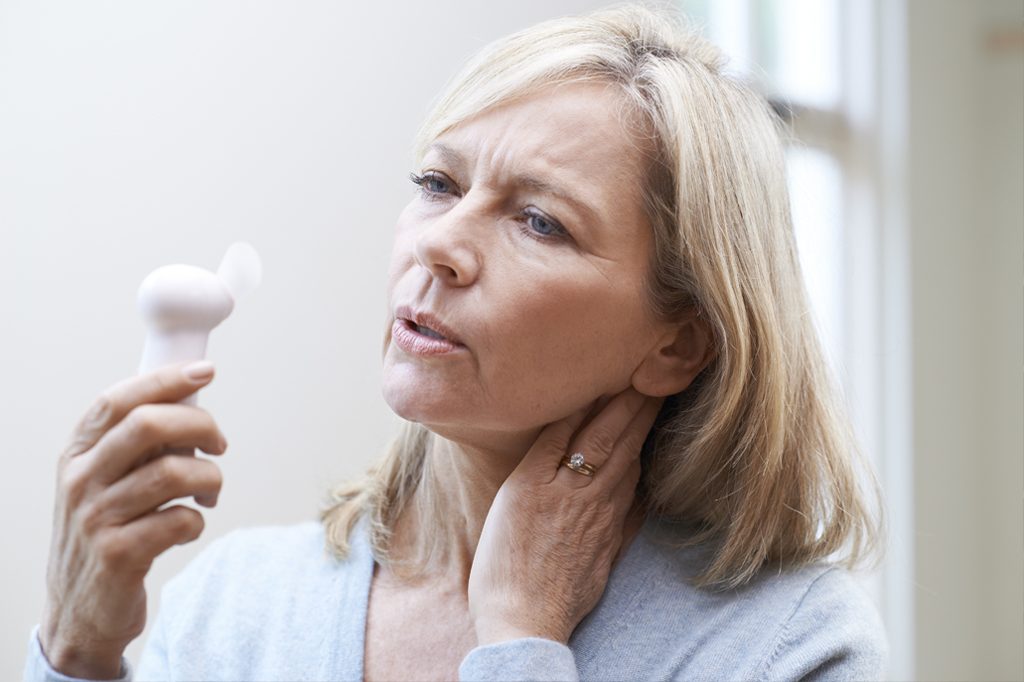
Menopause refers to the cessation of menstrual cycles and reflects the depletion of oocytes or eggs in the ovary. All women are born with a certain number or “bank” of eggs for reproduction and pregnancy. Once the bank is depleted, the woman goes through menopause which is a period of tremendous hormonal change that can affect them both physically and emotionally.
A woman is said to be in menopause when she has had no periods for one whole year. The average age of menopause for most women is 50 years old. However, each woman is unique and will have her own different timing as to when menopause sets in. This timing is determined by the number of eggs left in her “egg bank”, as well as other factors that can affect her ovaries such as cysts, previous surgery and other medical conditions.
What Actually Happens During Menopause?
During the peri-menopausal transition period leading up to menopause, a woman naturally begins to produce less of the female hormones oestrogen and progesterone. Due to fluctuating levels of these two hormones, women may experience both physical and emotional changes.
What Are Some Common Symptoms?
Menopausal symptoms include:
- Hot flushes
- Night sweats
- Mood swings
- Anxiety
- Insomnia
- Lack of energy and drive
- Increased risk of depression
- Vaginal dryness and pain during sex
The long-term effects of menopause and ageing include stroke, heart disease and osteoporosis. In osteoporosis, there is an excessive loss of bone tissue which leaves the bones vulnerable to fractures.
Going into menopause is of course, a natural event. During the transitional phase into menopause however, some women may have difficulty coping with the physical and emotional symptoms of the hormonal changes.
These symptoms can be so severe that even daily activities become a burden. The situation is often aggravated by stress from work and family commitments.
What Can I Do About The Symptoms?
Observing a healthy diet and lifestyle will help keep our bodies in a more youthful state and ensure a smoother transition. Conversely, excessive stress, poor eating habits and lack of exercise will be detrimental.
Women can also turn to hormone replacement therapy (HRT) to help provide them with the female hormones that she no longer produces, helping her alleviate some menopausal symptoms.
There are two main forms of HRT: vaginal hormones which can effectively treat vaginal and urinary symptoms, and systemic hormones, which are used for relief of troublesome menopausal hot flashes and night sweats. The former usually comes in the form of tablets, creams or vaginal rings, while the latter may take the form of oral pills or skin creams.
Is HRT Automatically Suitable For Me?
Treatment with HRT should be individualized according to a patient’s symptoms and risk profile. Annual medical health check-ups continue to be important for those who go on HRT: breast and vaginal examinations, Pap smear and mammograms.
Menopause need not be all bad news. For women with fibroids and endometriosis who suffer from heavy and painful menstruation, menopause may signify an end to their suffering as fibroids tend to shrink with the menopause.
Even without fibroids or endometriosis, for most of us, menopause may bring along a certain sense of freedom. You won’t have to worry about planning holidays around your period or the need to constantly change your pad or tampon. You also won’t have to worry about getting pregnant, and can stop using the birth control that you’ve needed for so long.







